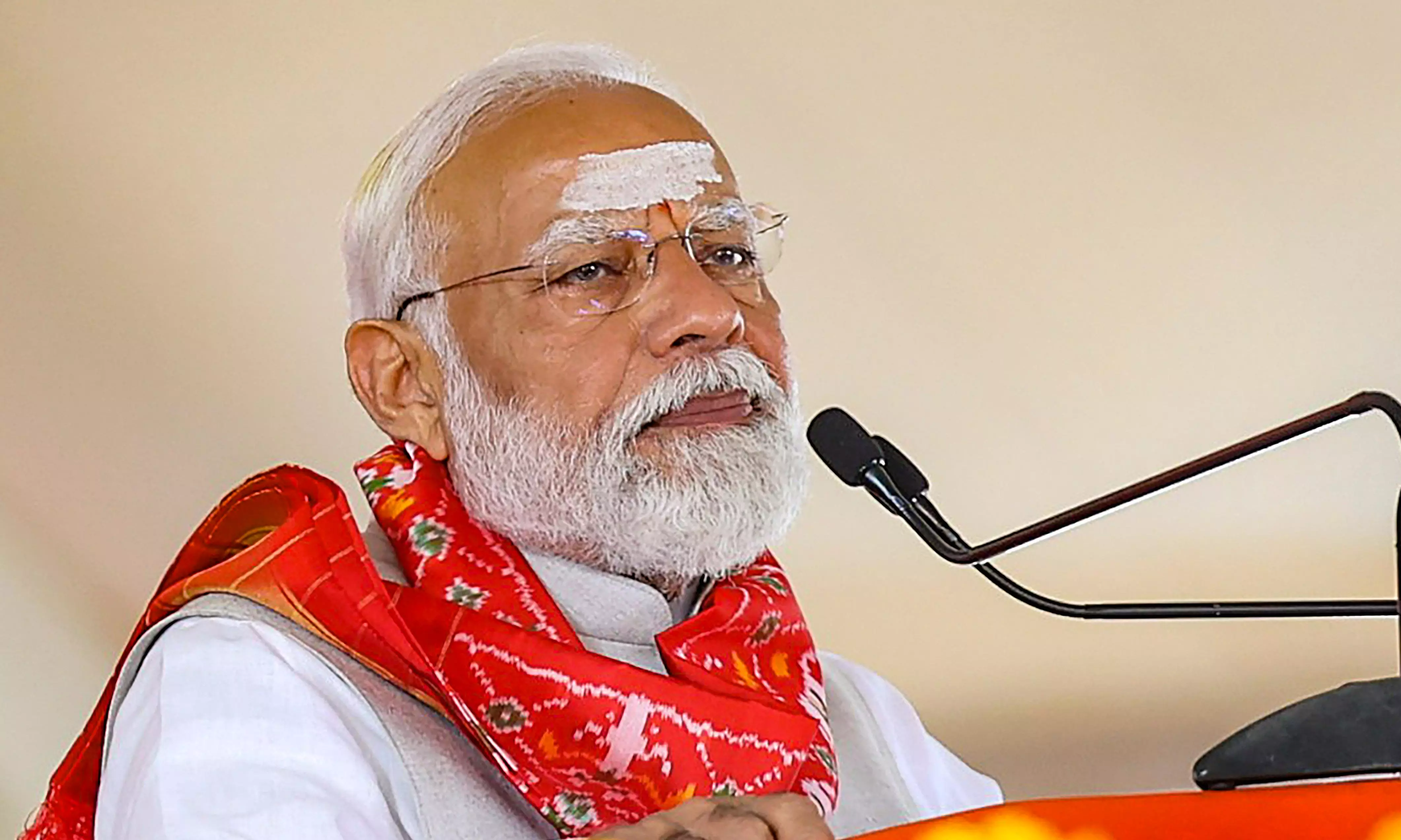
Replug | Why Modi is fundamentally wrong on Muslim reservations
Modi has alleged that INDIA bloc will hand over OBC, SC, ST reservations to Muslim community; the fact is Muslims already get reservations under OBC category based on their social and educational backwardness, under Mandal Commission recommendations

The BJP’s top strategist, Union Home Minister Amit Shah, has put forth this contention during campaigning for the upcoming Assembly election in Karnataka. His view is being echoed by his party colleagues and government functionaries led by Chief Minister Basavaraj Bommai. This has been the state BJP government’s argument in the Supreme Court as well, that the reservations for Muslims goes against the principle of social justice and secularism.
On March 27, just before the Model Code of Conduct came into force, the state government notified that the 4 per cent reservation for Muslims under the backward classes category would be cancelled. Instead, the community could avail of reservations in the EWS (Economically Weaker Section) category, that is available for dominant communities that don’t come under the socially and educationally backward communities.
Bommai govt on defensive
The issue here is whether Muslims were accorded the benefit of reservations as they belong to a minority religion or if their reservation comes under the ambit of social and educational backwardness, the key to class/caste-based reservations. Some 17 sub-sects of Muslims in Karnataka get the benefit of reservations under the BC category.
The Karnataka government finds itself on the defensive as the Supreme Court, no less, has frowned on the Bommai dispensation’s move. It has just stopped short of imposing a stay on the decision after receiving an undertaking from the BJP government that it will not implement the order at least until May 9, a day before the Assembly election.
A two-member bench of the Supreme Court said the manner in which the Bommai government took the decision was “highly shaky and flawed”, according to media reports quoting the court. Justice KM Joseph, one of the two judges on the bench, was quoted as saying: “On the face of it, they (Muslims) have been enjoying this position for a very long time…On the basis of documents produced, Muslims are backward and then suddenly it is changed.”
Relying on Mandal report
Paradoxically, the Karnataka government in its affidavit to the apex court has relied upon the Mandal Commission report implemented in 1992, which it quotes as stating that “religion could not be the sole basis for reservation”. It could be a misreading of what was implied as it is the very same Mandal Commission which recommended that the Muslim community be included for reservations under the social and educational backward category.
The Mandal Commission grouped 80 Muslim groups besides 400 Hindu caste groups as backward.
Well-known academic Zoya Hasan in the Seminar journal writes that “the official policy was premised on the principle of social and educational backwardness of any class, with such backwardness established by certain defined criterion. It recognised specific communities cutting across religion as backward on the basis of a time-tested criterion of backwardness evolved by different states.”
Moreover, according to Hasan, “any religious community comprises both backward and non-backward sections. As in the case of Hindus, there are caste-like formations among Muslims, which the Commission recognised as the Muslim counterpart of a backward class”.
Muslim quota in other states
Tamil Nadu has in place a reservation of 3.5% for Muslims based on their social and educational backwardness.
Andhra Pradesh provides 4 per cent reservation for 14 backward sects within the Muslim community. Interestingly, Andhra had initially attempted to give reservations to Muslims based on their religion which was struck down by the state’s High Court. After two more attempts, the government then set up the PS Krishnan Committee based on which reservations were offered for 14 sub-sects, which is in practice now.
Kerala accords 12% reservations for Muslims in jobs, but only available to those whose annual income is less than Rs 2.5 lakh annually. Bihar and Bengal too have provision for Muslim reservations under the OBC category.
Backward Class Commissions like Mandal and others like Andhra’s Krishnan Commission and Karnataka’s O Chinnappa Reddy arrived at their conclusions after meticulous ground-level surveys and a nuanced understanding of India’s social realities. There is a history of scientific methods used by the Backward Classes Commissions that have been validated by various governments at the Centre and the states before implementing their recommendations.
No need for Muslim votes
If, as the BJP argues, reservations for Muslims had been unconstitutional, they could not have passed the strict scrutiny of India’s judiciary and would have been struck off the statute books long ago.
Yet, the BJP and its leader Amit Shah have continued to stick to their allegations that the Muslim reservations are unconstitutional.
Going by the track record of the Bommai government since 2019, the move to cancel OBC reservations for the Muslims is the latest in a series of moves that have gone against the community. During the BJP’s latest term in Karnataka, Muslims state have been subject to a series of intimidatory policies that have caused disruption to education of their girl-children (on the Hijab issue), the sale of meat (over the practice of halal-cut) and their customary participation in Hindu religious fairs.
What senior Karnataka politician KS Eshwarappa recently told the media in Shivamogga summarises the party’s perspective when he categorically said the BJP does not need Muslim votes. The results of the forthcoming election will indicate the validity of this postulate.

